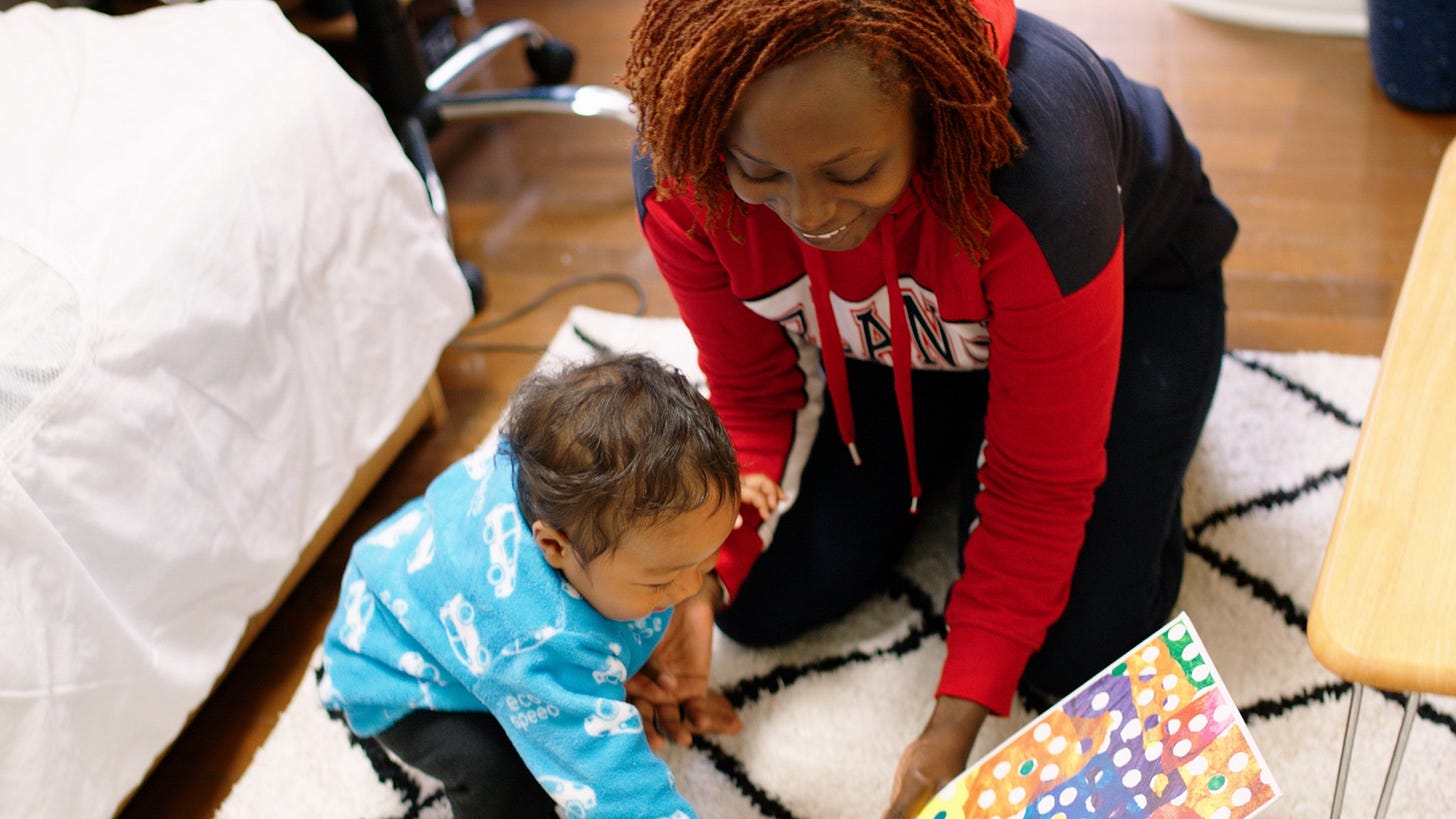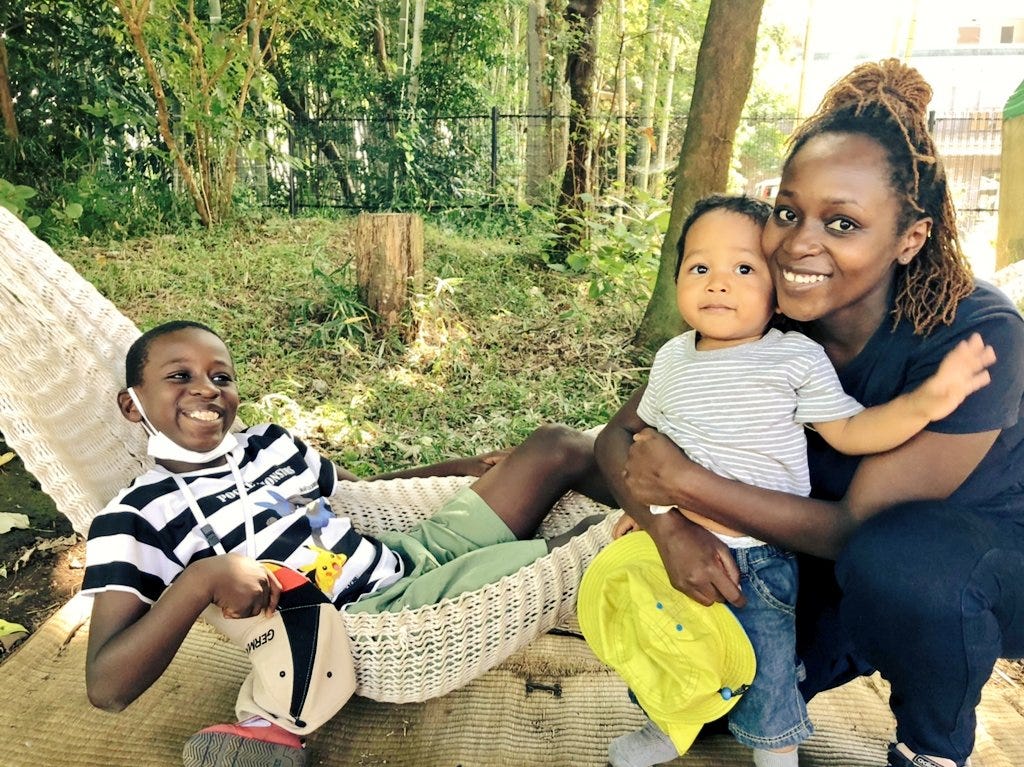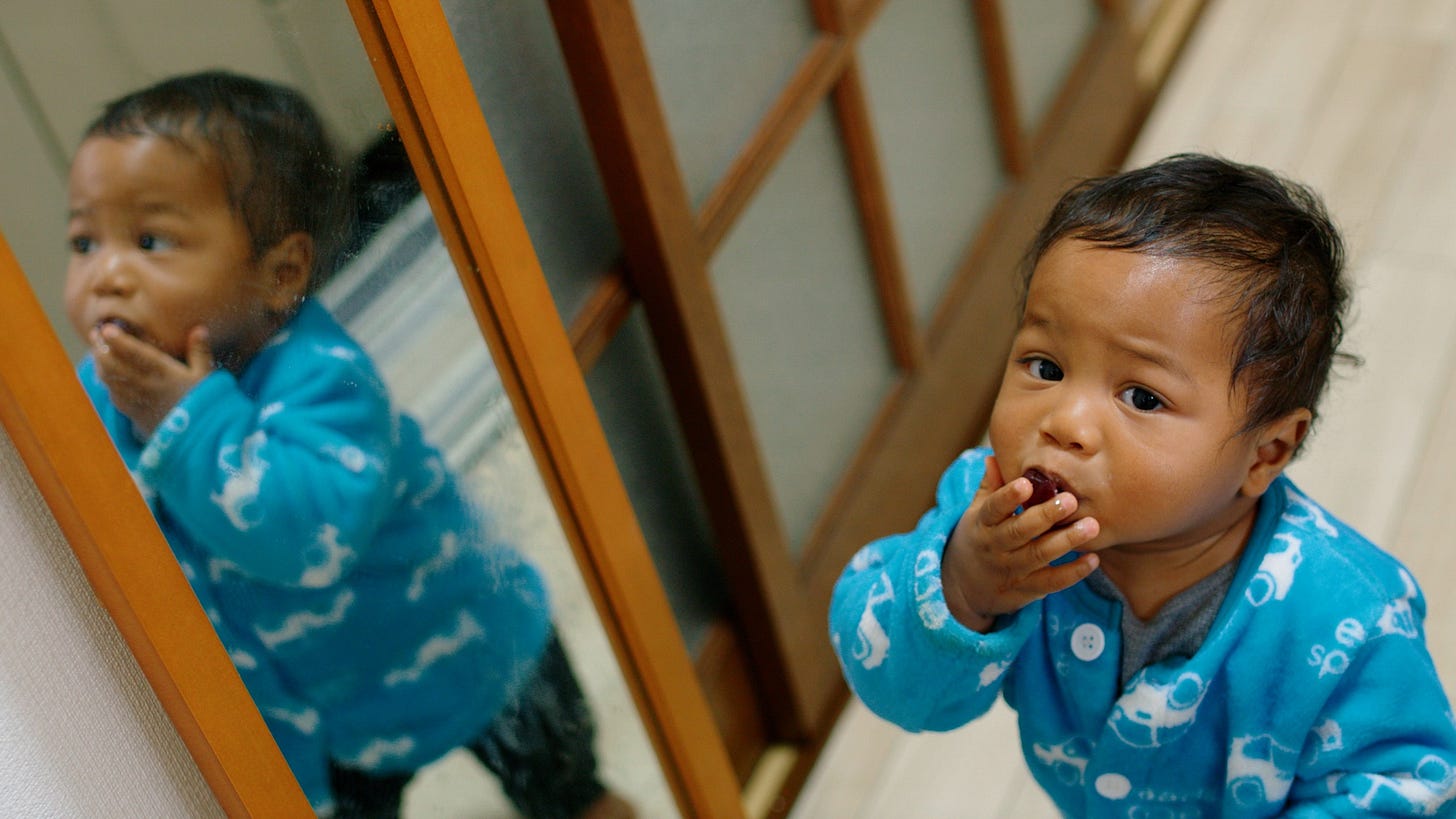In mid 2022, I sat down with Harriet to interview her for my documentary on single mothers in Japan. Harriet is from Kenya and has been living in Japan with her two sons as a single mother for 8 years now.
When I told some people about interviewing her, there was some curious reactions.
“Why are you interviewing her? Isn’t it a film about Japanese single mothers”
No! It’s a film about single mothers in Japan, and that is certainly what this Kenyan warrior is! Harriet was amazing. She was open and honest and pulled no punches, giving me an interview that no Japanese mother could have. She told me her story and her experiences in Japan from her point of view, a fellow outsider in Japan, and it was brilliant. I could not have made the film without her.
In fact, she was so good that I didn’t need to be there! Her beautiful son Kai was very active on that day, so I found myself outside babysitting him as Harriet did the entire interview alone. She knew what she needed and wanted to say, and did it with the poise and conviction of a battle hardened professional.
Harriet recently blogged about the film and this is a copy and paste of her blog which can be found here: https://savvykenya.wordpress.com/2023/02/18/the-ones-left-behind-documentary-about-single-mothers-in-japan-by-rionne-mcavoy
Thank you Harriet!
The Ones Left Behind: Documentary About Single Mothers in Japan by Rionne McAvoy
When Rionne asked me to be interviewed for his documentary about single mothers in Japan, I wasn’t sure whether to accept or not. I did not want to become the “face of single mothers”. What a silly thing to worry about. I am a single mother, that is a fact. There is nothing to be embarrassed about and everything to be proud of. To be the parent that is turning up and taking all of the responsibility that is involved in raising children is no mean feat. We single parents should be celebrated. If you want to vilify someone, make it your business to find the missing parents, and shake some responsibility into them.
This documentary was bigger than me, so I agreed to be interviewed. It is going to highlight the problems that single parents living in Japan face. Japan is one of the richest countries in the world, but you will be surprised at the poverty rate of single mothers and their (our) children in Japan.
Rionne’s documentary explores the link between single mothers and poverty. Japan has this “traditional” system where many fathers work and many mothers stay home to raise children. Some mothers will work part-time. When parents get divorced, in almost all the cases, the children will end up with the mother. These mothers have sacrificed their careers to support their husbands and their families, but now they have to find ways to work full-time to make money for their now single-parent household. However, it is hard to get permanent and well-paying full-time jobs, so many single mothers are stuck in part-time and casual jobs with little income, little job security, no paid time off, etc. In addition, child support payments from the fathers are not easily enforced here or many women don’t know how to go about it. It may require hiring a lawyer to go to court, but many don’t have the money for lawyer fees. It is truly a dire situation.
Watching the documentary, I could see fellow single mothers doing their best for their children. Many are divorced, and only a tiny fraction are never-married single parents. They gave up their careers and jobs for the families, and when they got divorced, they are the ones picking up the pieces and keeping their kids together. Some are survivors of domestic violence and it was very hard watching them talking about it. I couldn’t stop the tears from rolling down my face. The women interviewed had come out the other side, and it was so inspiring watching how much they are thriving now. I know there are many women even now in similar domestic violence situations who do not go know how they can get safely divorced, and if they do, they worry about how they can support themselves and their children after divorce.
If you want to read more about the problems facing single mothers in Japan, check out this link and this link too.
What needs to change? What are the solutions? Some mothers in the documentary offer insights.
More government support is needed for single parent households. For example, there is a welfare benefit for single parents but there are so many limitations to use it, and the moment your income passes the ridiculously low threshold (like ¥1.6M annual income), then you are no longer eligible to get it. Income limits should be eliminated and any single parent households that needs it should be eligible.
However, ultimately, a culture change is necessary. Women need economic independence. It turns out that depending on your husband and quitting the workplace will put you at a high risk of poverty should you ever get divorced or widowed, and there is a 30-50% chance of that happening.
There is a high penalty attached to single mothers all over the world but more so in Japan. Despite what you may have read or heard, children thrive when they have safe, stable and nurturing environments and relationships, and these conditions and connections can exist in any type of family, including single-parent households.
There is mounting evidence indicates that underlying factors — strong and stable relationships, parental mental health, socioeconomic status and access to resources — have a greater impact on child success than does family structure alone. We should stop obsessing over how many single mothers there are and stop shaming them. https://www.nytimes.com/2018/02/10/opinion/sunday/single-mothers-poverty.html
Why would you shame the person taking the sole responsibility for raising their children? Where is the logic in that?
When you get to chance watch this documentary, you will understand just what a great job Rionne did sharing the stories of single mothers in Japan. It runs for 78 minutes, but you will wish it was longer. It is no wonder this documentary has already won several awards. It has been accepted for screening at the Cannes Film Festival, Paradise Film Festival, London Film Festival, among others. The documentary is not available to the public yet because it’s being screened at film festivals at this time, but when it becomes public, I will be very happy to share the link.







